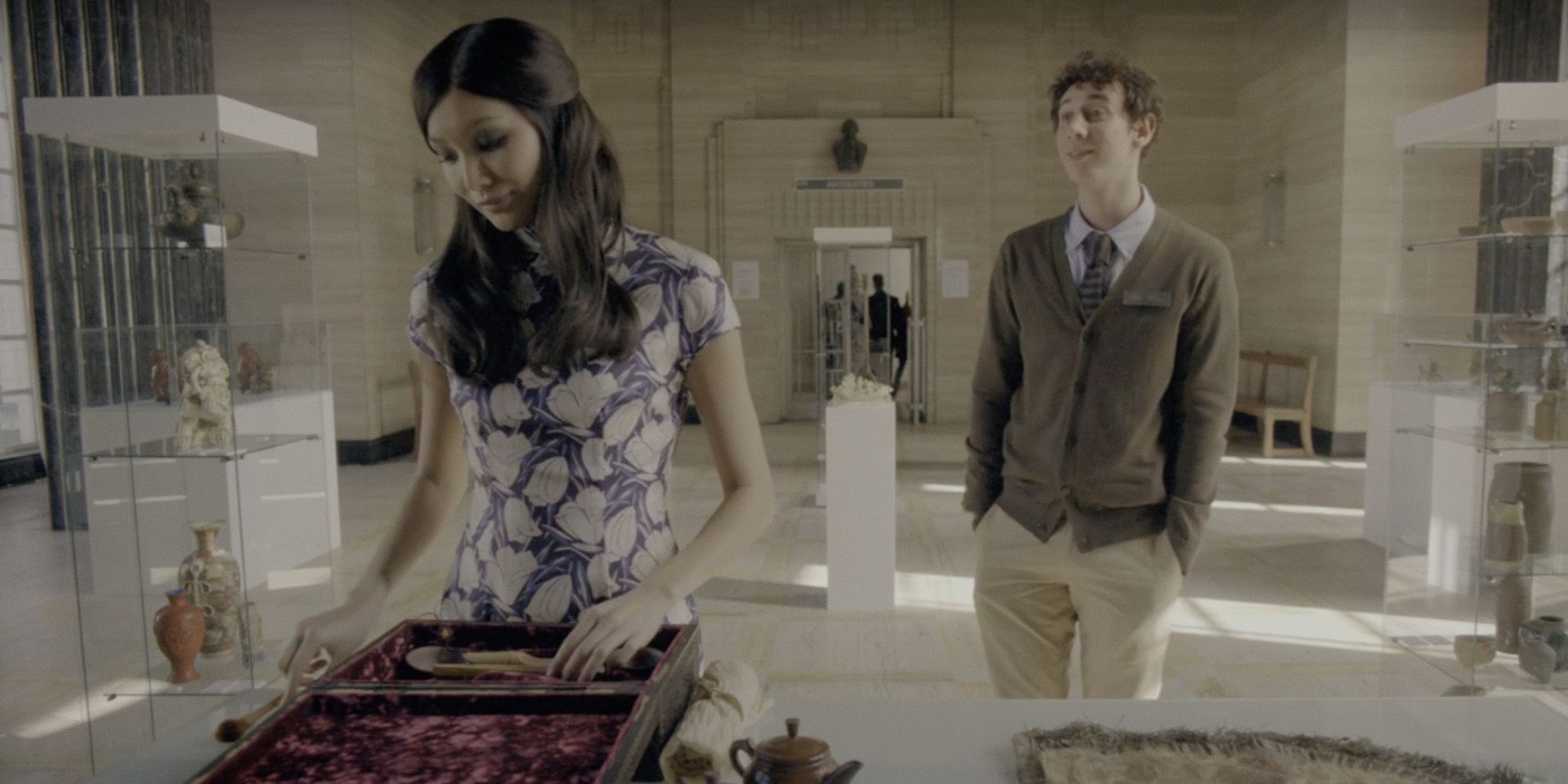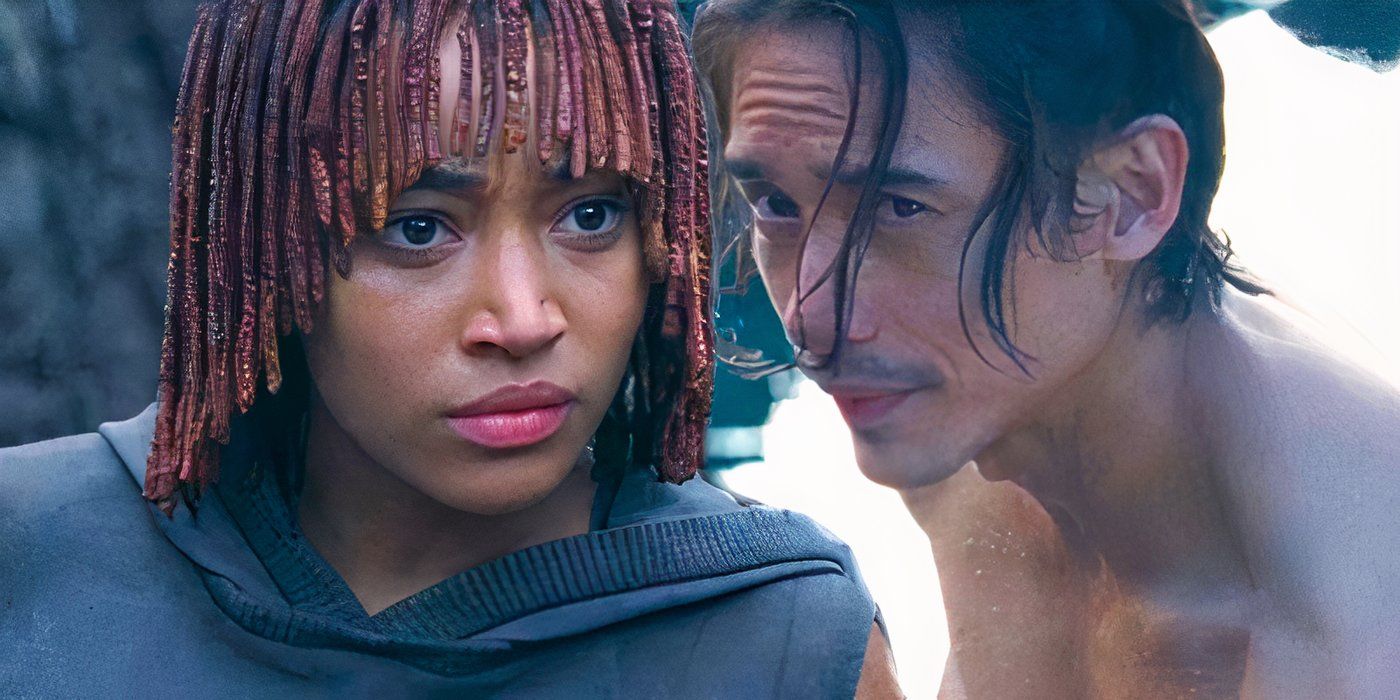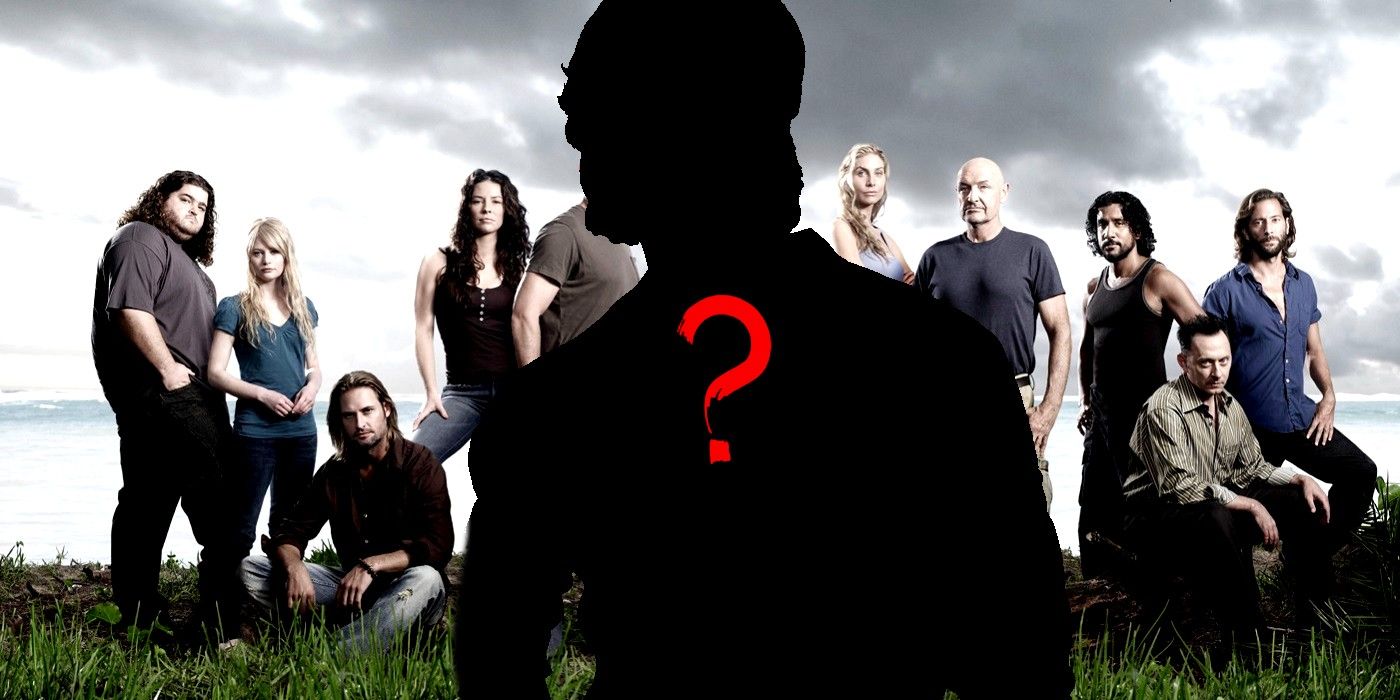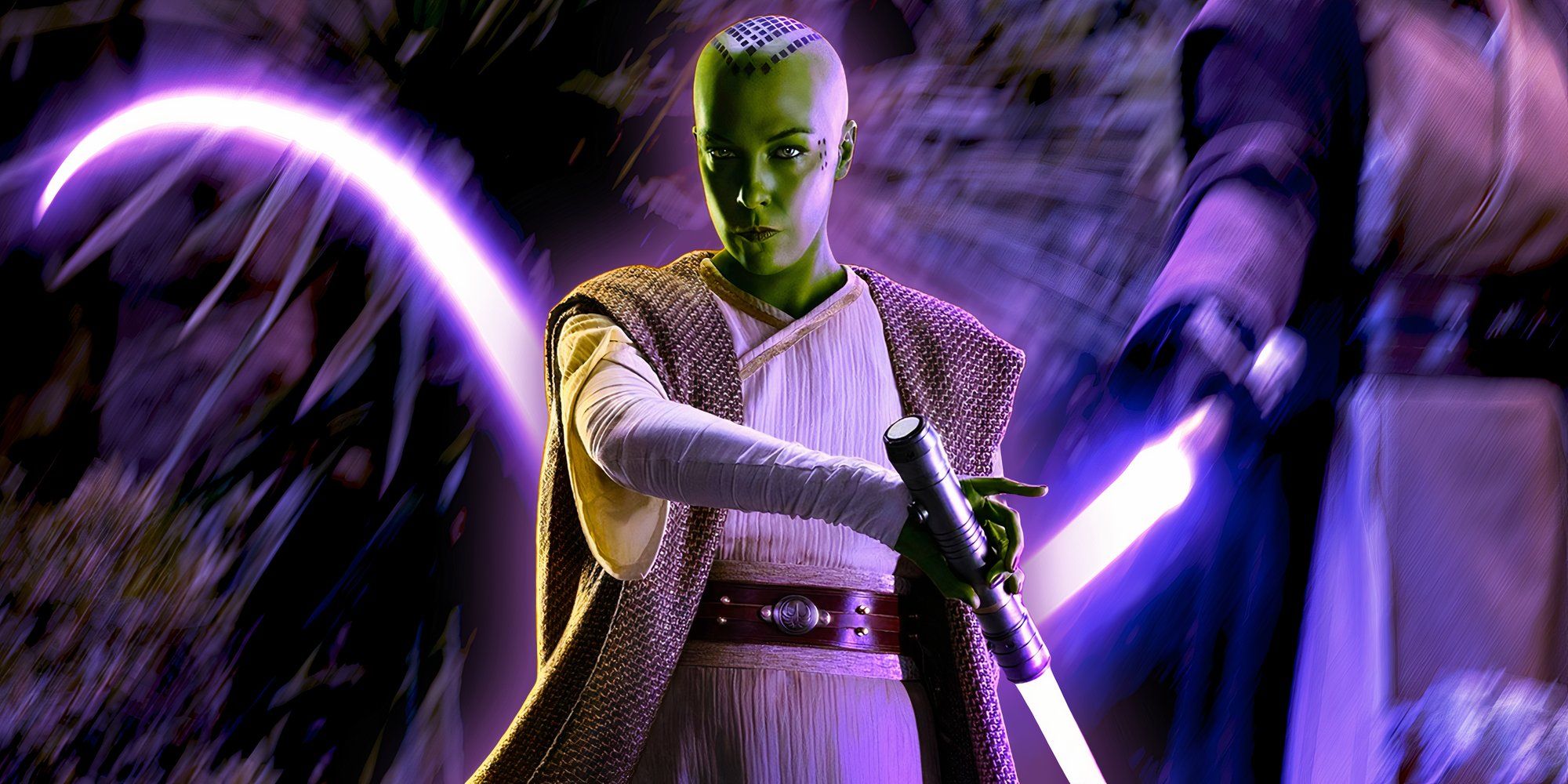Gemma Chan recently addressed one of her more controversial roles in the popular BBC series, Sherlock. The highly acclaimed series, which was created by Steven Moffat and Mark Gatiss, first aired in 2010 and stars Benedict Cumberbatch in the titular role of Sherlock Holmes. While Sherlock is based off of the original detective stories written by Sir Arthur Conan Doyle, the show differentiates itself from its source material by taking place in present-day London.
Gemma Chan guest-stars in the second episode of season 1 – titled “The Blind Baker” – as Soo Lin Yao, a Chinese pottery expert who works at the fictional National Antiquities Museum in London. From the opening minutes of the episode, she is immediately portrayed wearing a qipao (Chinese traditional dress) and speaking in a thick Chinese accent (despite Chan’s actual fluency in English), while vaguely Asian-sounding flute music plays in the background. During the course of the episode, it is gradually revealed that Soo Lin was formerly a member of the Black Lotus Tong gang, which was responsible for smuggling valuable artifacts from China into London. She briefly aids Sherlock and Watson in tracking down a particularly dangerous member of the gang, before she is unceremoniously shot and killed offscreen.
In a recent interview with Vogue, Chan expressed remorse over portraying the “racially tone-deaf” role. She says that she is “much more aware” now than she was over a decade ago when she portrayed Soo Lin, and that these days she is more likely to “speak up […] if I felt that a role was leaning into an orientalist trope.” Check out the actress’ full statements below:
“In a 2010 episode of Sherlock set in Chinatown, she played a witheringly stereotypical damsel in distress. Critics and fans accused it of being a racially tone-deaf exercise in orientalism, with Chan cast as the wilting lotus blossom. “Would I necessarily make the same choices now, if given the choice? Maybe not. I think I would speak up more if I felt that a role was leaning into an orientalist trope of some sort,” she says. “I’m much more aware. And I think I’m in more of a position where I could say something.” At the time, I say, I wasn’t angry – I was just, as a South-east Asian woman, sad that it was one of the few Asian roles I’d seen for women on British television. Chan nods, her eyes brimming with empathy. “With complete respect to everyone involved… I’m not here to throw shade on anyone… but yeah, I totally hear what you’re saying.” Her history as a “jobbing actress”, as she charmingly puts it, also means, “I don’t look down on anyone doing any position or in any job on set. The industry has really shifted, even in just the time that I’ve been working,” she says, but notes, “Changing the actual culture – changing in practice – takes longer.”

Later on in the interview, she also notes that “The industry has really shifted” in the ensuing years since “The Blind Baker” aired. This is certainly true, with recent films like The Farewell and Minari shedding an authentic light on the Asian diaspora that would have been inconceivable for mainstream Hollywood pictures to do even a short decade ago. But even with the strides that the entertainment industry has made in the 2010s in its depiction of minorities and marginalized groups, there is always more work to be done.
While it is important to scrutinize problematic depictions of minorities in mainstream media, it is equally important to keep the right folks accountable. Chan may have been the one portraying Soo Lin, but the more important factor to consider is that none of the writers of the episode (Mark Gatiss, Steven Moffat, Steve Thompson) were of Chinese descent, or otherwise had authentic insights into Chinese culture. This led to countless cultural inaccuracies, such as the “Suzhou” numerical system being incorrectly identified as “Huangzhou” and – more egregiously – the episode’s insinuation that origami is a Chinese art-form rather than a Japanese one.
While actors do have a say in the sorts of roles they accept, it is more important to call out the directors, writers and producers who usually call the final shots on any given project. Doing so will allow future actors of marginalized backgrounds to accept culturally accurate roles without the pressure of having to accept problematic ones for the sake of making a living. Chan is the one apologizing here, but it should really probably be Sherlock’s writers.




